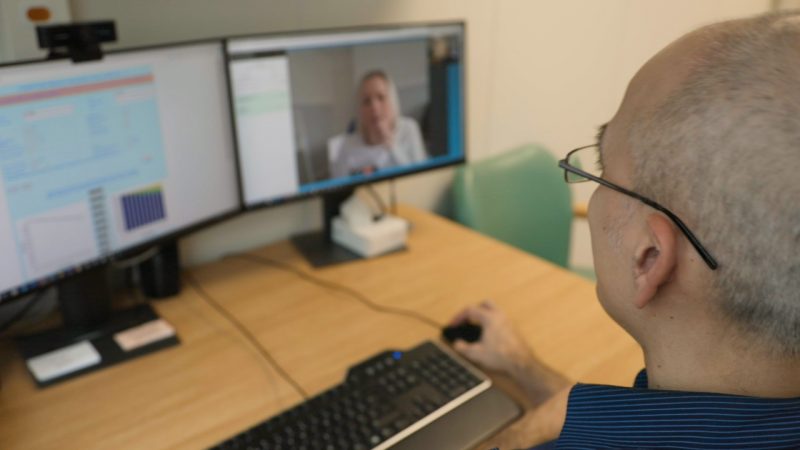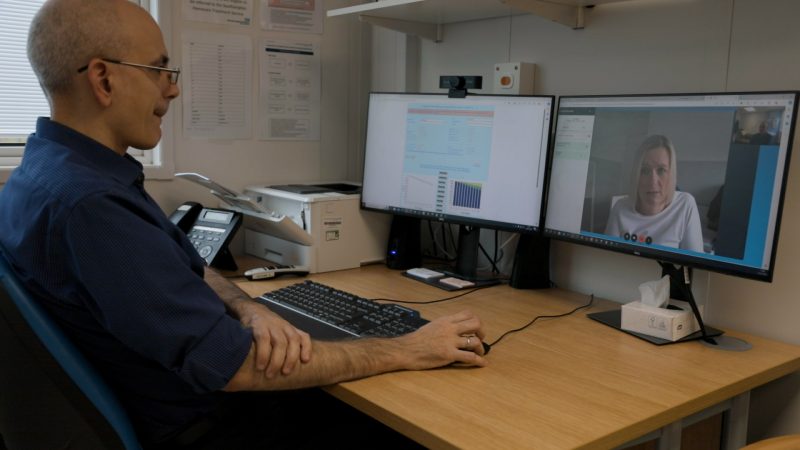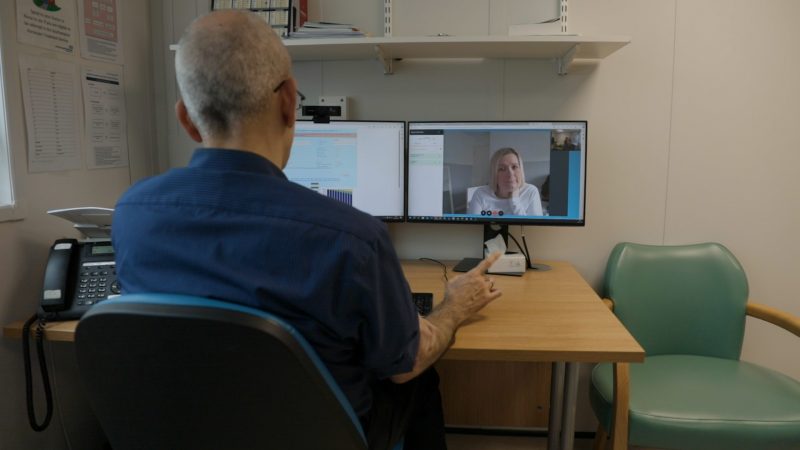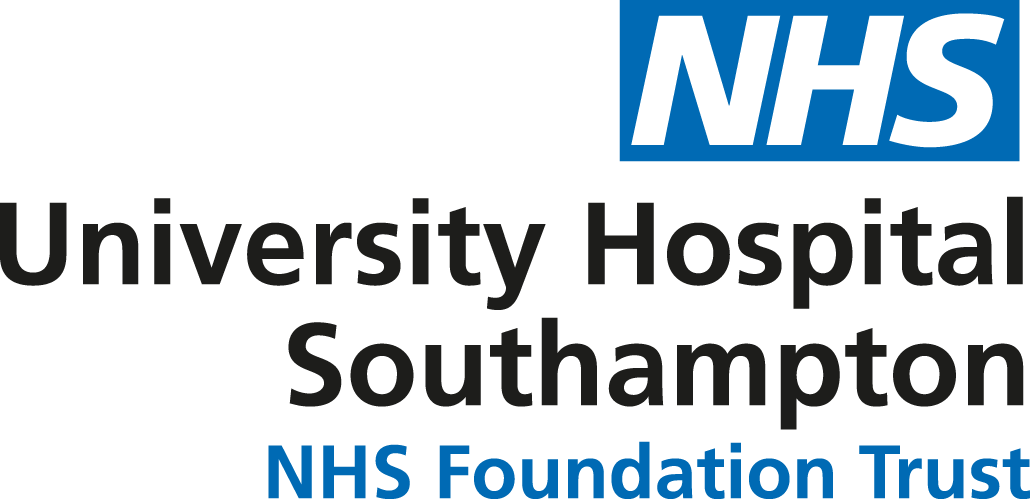UHS Digital has recently rolled out a new system for conducting virtual consultations using video conferencing software.
Medical Oncologist Dr Ioannis Karydis explains how the system works and outlines some of the benefits to patients and the NHS gained from video consultations.

A video consultation in progress
What are video consultations?
Video consultations, also known as virtual consultations, are a type of remote consultation that has become a lot more prominent and common over the last few years, particularly after the COVID epidemic hit us.
They offer a lot of benefits over traditional remote consultations, which were simply phone calls to the patients, for a number of reasons.
First of all, they allow us to positively identify the patient as who they are.
We can actually see them and assess how they look a lot better than simply by trying to listen over the phone.
We can also establish whether there’s anybody else in the room with them and actually assess the environment they are based in more accurately.
Patients who are hard of hearing also have the benefit of being able to see our faces, so they can lip read, which makes it a lot easier to understand conversations that could have been quite challenging otherwise.
Watch Dr Ioannis Karydis demonstrate the benefits of video consultations
Avoiding travel
Our patients very often tend to be on the older end of the scale and travelling to the hospital can be an issue.
They may not be able to drive themselves and may find it difficult to have people get them here. And even if they can drive, finding a place to park in a hospital is very challenging.
And then there’s a very often an issue of where to wait once on the hospital site.
So being able to do the whole consultation at home offers a large number of benefits for them. For these patients, it’s much more preferable to do this remotely, especially when they need to be checked frequently, every two weeks or three weeks in some cases.
We do need to be sensible, so we usually intersperse face-to-face meetings with video consultations so that we never lose track of what is happening.
And the key is that we always earmark some time for them so that if there is a need for the consultation to be in person, it is very simple for them to just drop in.

Doctors can visually assess their patients
Benefits to the hospital and NHS
Video consultations and remote consultations in general offer some advantages for the for the NHS that are shared with the patients.
If a patient is less likely to become ill because of not having visited the hospital and come into contact with other people, that is a win for the system as a whole.
We can also say there are additional potential benefits to the trust infrastructure as fewer physical consultations alleviates some of the pressure on the hospital car parks and waiting areas for patients.
And with the exponential rise in the number of patients needing help from the NHS, that’s definitely something that needs to be taken into account.
Implementing the new video consultation system
Oncology is a major user of remote consultations, so when a call went out from the Digital team for a clinician who would be interested in participating in the process of selecting the next generation of video conferencing systems, I put myself forward as I have an interest in in I.T.
My involvement at that point was to try to look at what the software providers were offering on the tender versus what we wanted and see what the match up was.

Video consultations reduce the need for frequent travel
Invariably, there’s always going to be some disconnect between what we would like to have and what’s available, and the whole point of the process was to try to get the best match for our needs and also the best value for money as well.
It is absolutely vital that clinician and digital colleagues work together when sourcing clinical software.
If clinicians do not take part in this process, we will end up with a system that does not fit our needs.
And there’s no point complaining that the system does not fit our needs if we have not actually told them what our needs are to begin with.
The UHS digital team was very helpful through the whole process.
They made it very clear where I could be helpful in the process, and they valued my opinion because they really need clinician input to be able to guide them on our needs and the design of the service.
